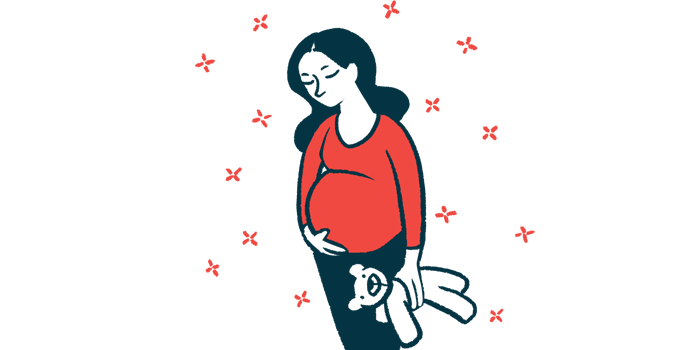Stopping antidepressants during pregnancy tied to lower PPHN risk
Researchers: Reduced risk should be weighed against not treating depression
Written by |

Discontinuing antidepressants during pregnancy might reduce the risk of persistent pulmonary hypertension of the newborn (PPHN) and hospitalization, a Danish study suggests.
“However, the reduced risk for newborns should be considered in light of the potential risks associated with untreated maternal depression, which may affect both the mother and the newborn,” the researchers wrote. The study, “Antidepressant exposure patterns during pregnancy and risk of adverse newborn outcomes,” was published in Psychiatry Research.
PPHN is a form of pulmonary hypertension where a newborn’s lung arteries don’t open entirely and remain constricted after birth, limiting the flow of oxygen. Infections, fetal feces in the amniotic fluid breathed into the lungs, and developmental defects in the heart are among the factors that contribute to PPHN.
Antidepressants, particularly selective serotonin reuptake inhibitors (SSRIs), are widely prescribed for depression and anxiety. Depression around the time of giving birth is common and data show it affects about 1 in 4 women. Untreated depression can lead to preterm birth or low birth weight, but continuing antidepressants may also pose risks, such as spontaneous abortion, preterm birth, congenital heart defects, and PPHN.
Here, researchers explored whether continuing or discontinuing antidepressant medications during pregnancy affects the risk of PPHN, hospitalization for any reason that lasts more than 24 hours, and congenital heart defects.
Lowering risk of PPHN
The researchers first identified all successful singleton pregnancies, that is, not twins, between January 1997 and December 2016 from the Danish Medical Birth Registry. Only newborns born at term, which is 36 weeks of pregnancy or later, were included. They then tracked mothers who filled at least one prescription for antidepressants in the 24 weeks, or around six months, before pregnancy and lived in Denmark until at least a day after their delivery. In total, 33,776 pregnancies were included and distinct patterns of antidepressant use were identified.
Discontinuing the SSRI citalopram during pregnancy was associated with the lowest risks for PPHN and hospitalization. The risk of PPHN was reduced by 65% compared with mothers who continued using citalopram. Similarly, stopping citalopram was linked to a 14% lower risk for hospitalization over continuing it.
“Altogether, our study suggests a potential decreased risk of hospitalization of the newborn and PPHN if mothers discontinue antidepressant use during pregnancy as compared with continued citalopram use,” the researchers wrote.
The risk increment observed for PPHN in pregnancies with exposure to antidepressants was about 5.4 per 1,000 individuals, which was deemed “relatively small” by the investigators.
“Consequently, the clinical significance of this association is modest and for pregnant women with major depression, the benefits of antidepressant therapy likely surpass the potential risks,” the scientists wrote. “The decision to continue or discontinue antidepressant medication is complex. Some women may discontinue medication due to symptom improvement, while others may continue to prevent [depression] relapse.”
The study’s authors called for more research to confirm their findings and to “explore potential pharmacological mechanisms that explain” the results.




